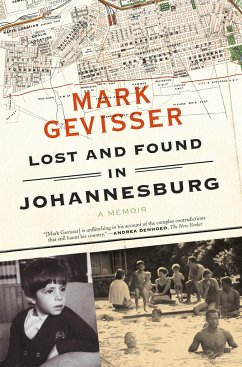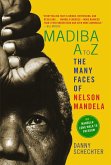An inner life of Johannesburg that turns on the author's fascination with maps, boundaries, and transgressions Lost and Found in Johannesburg begins with a transgression-the armed invasion of a private home in the South African city of Mark Gevisser's birth. But far more than the riveting account of a break-in, this is a daring exploration of place and the boundaries upon which identities are mapped. As a child growing up in apartheid South Africa, Gevisser becomes obsessed with a street guide called Holmden's Register of Johannesburg, which literally erases entire black townships. Johannesburg, he realizes, is full of divisions between black and white, rich and poor, gay and straight; a place that "draws its energy precisely from its atomization and its edge, its stacking of boundaries against one another." Here, Gevisser embarks on a quest to understand the inner life of his city. Gevisser uses maps, family photographs, shards of memory, newspaper clippings, and courtroom testimony to chart his intimate history of Johannesburg. He begins by tracing his family's journey from the Orthodox world of a Lithuanian shtetl to the white suburban neighborhoods where separate servants' quarters were legally required at every house. Gevisser, who eventually marries a black man, tells stories of others who have learned to define themselves "within, and across, and against," the city's boundaries. He recalls the double lives of gay men like Phil and Edgar, the ever-present housekeepers and gardeners, and the private swimming pools where blacks and whites could be discreetly intimate, even though the laws of apartheid strictly prohibited sex between people of different races. And he explores physical barriers like The Wilds, a large park that divides Johannesburg's affluent Northern Suburbs from two of its poorest neighborhoods. It is this park that the three men who held Gevisser at gunpoint crossed the night of their crime. An ode to both the marked and unmarked landscape of Gevisser's past, Lost and Found in Johannesburg is an existential guide to one of the most complex cities on earth. As Gevisser writes, "Maps would have no purchase on us, no currency at all, if we were not in danger of running aground, of getting lost, of dislocation and even death without them. All maps awaken in me a desire to be lost and to be found . . . [They force] me to remember something I must never allow myself to forget: Johannesburg, my hometown, is not the city I think I know."
Bitte wählen Sie Ihr Anliegen aus.
Rechnungen
Retourenschein anfordern
Bestellstatus
Storno


